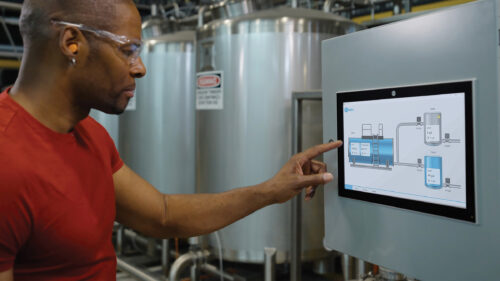Project management skills enhance career advancement
"Today, more manufacturing engineers are finding themselves leading or participating in multidisciplinary project teams," says Stan Portny, president of Stanley E. Portny and Associates LLC and author of Project Management for Dummies (IDG Books Worldwide, Foster City, Calif.)."These teams often include people with diverse educational backgrounds, operating styles, organizational responsi...
“Today, more manufacturing engineers are finding themselves leading or participating in multidisciplinary project teams,” says Stan Portny, president of Stanley E. Portny and Associates LLC and author of Project Management for Dummies (IDG Books Worldwide, Foster City, Calif.).
“These teams often include people with diverse educational backgrounds, operating styles, organizational responsibilities and even cultural influences. In my new book, I explain that finely honed project management skills are essential to ensure success in this varied and dynamic environment,” says Mr. Portny.
What is a project? A project may come in one of a variety of guises and disguises. The scope may be large, involving a team, or small, involving just one person. It may involve a long time for completion or just a week or two. Whatever the scope, a project always has three ingredients. First, there is a specific outcome desired. It could be rebuilding the control panel on an existing machine or designing, building, and commissioning a new process line. A project has a definite start and end date. Of course, in manufacturing, the end date never moves, but the start date is always delayed by management’s project approval process. The third ingredient is having an established budget.
Mr. Portny continues, “As an electrical engineer, I received professional recognition and job rewards for my individual ability to correctly analyze data and solve technically challenging problems. However, facilitating a high performing project team requires blending your own analytical insight with the ability to stimulate and support other people’s creativity and problem solving. You learn quickly that the real key to success lies in identifying the right people to involve, eliciting each person’s individual commitment to overall project success, establishing an open and trusting environment, and ensuring open and effective communication among all participants.”
Not too good to be true
Is it too good to be true that all this advanced planning leads to success? Actually, no, it isn’t too good to be true. When one practices the principles of good project management, good things happen like accomplishing more, in less time, with fewer resources. Activities are done in the right order at the right time so that people don’t waste time waiting for results needed to proceed. Teams anticipate possible problems and either try to avoid them or prepare to deal with them.
Meetings can be an effective method of sharing information, generating creative ideas, and creating agreement. Meetings can also be a source of anger and frustration. Meetings can be the last vestige of interpersonal contact or the biggest time-waster in business today.
Meet more effectively
Here are Mr. Portny’s tips for effective meetings:
-
Clarify the purpose of the meeting;
-
Tell others the purpose of the meeting;
-
Prepare a written agenda and circulate in advance;
-
Keep meetings to one hour;
-
Start on time;
-
Take written minutes of who attended, what items were discussed, and what decisions were made; and
-
Keep a list of action items to be explored further after the meeting and assign responsibility for all entries on that list.
Many new product implementations are now done with interdisciplinary teams that, in larger companies, usually include members across geographic boundaries. Control engineers are usually included in these teams. Mr. Portny concludes with these words of advice, “A particular challenge exists because many people believe that the manufacturing engineer’s participation is only required towards the end of a project. Your task is to help others understand that more timely performance, as well as improved product designs, will be achieved if all team members are encouraged to participate in all stages of a project from conception through design and development to actual implementation of the final product.”
Want to enhance your career and, at the same time, assure that important projects are completed successfully? You can accomplish both through improved project management skills.
| Author Information |
| Gary A. Mintchell, senior editor gmintchell@cahners.com |
10 Tips for Being a Better Project Manager
Be a “Why” person
Be a “Can Do” person
Don’t assume
Say what you mean; mean what you say
View people as allies, not adversaries
Respect other people
Think “Big Picture”
Think detail
Acknowledge good performance
Be both a manager and a leader
Source: Control Engineering with input from Project Management for Dummies
Do you have experience and expertise with the topics mentioned in this content? You should consider contributing to our CFE Media editorial team and getting the recognition you and your company deserve. Click here to start this process.





